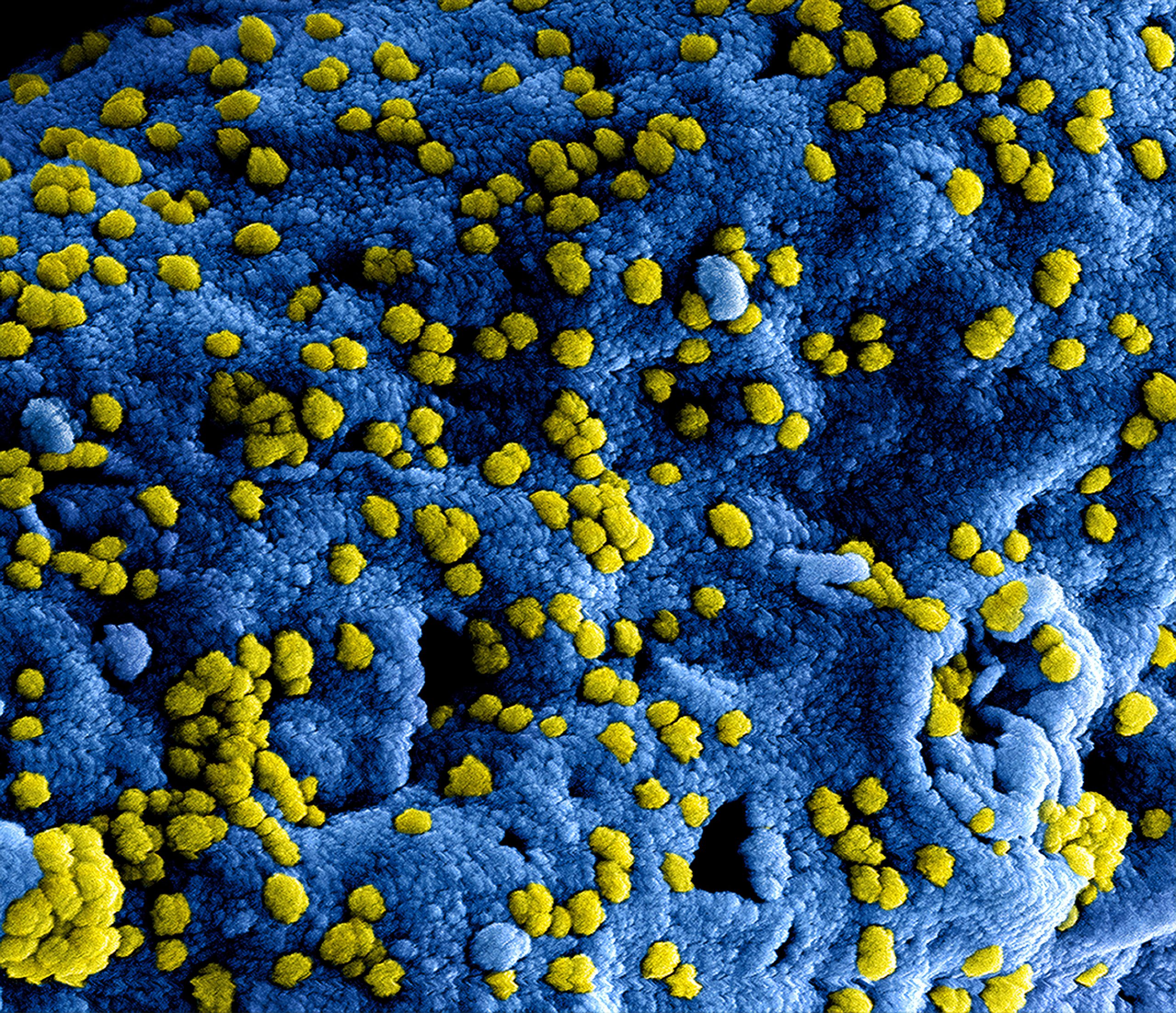Virology

Department of Virology
Modern virology is a relatively young but highly innovative field of activity for doctors and scientists. Scientific research and efficient patient care are mutually dependent and promote each other to a high degree. The findings from research and patient care serve to protect against infections and infectious diseases. In addition to the human immunodeficiency virus (HIV) and influenza viruses, the new coronavirus (SARS CoV2) is now also known to the general public.
German virology received extraordinary recognition in 2008 when Prof. Harald zur Hausen was awarded the Nobel Prize for Medicine.
The Berlin Virology Department was the first in Germany to receive the status of a university institute back in 1958. Today, this Institute of Virology and the virological health care provided by Labor Berlin are known for their work in the field of coronaviruses and hantaviruses, among other things, and remain committed to this tradition as national consultant laboratories.
Diagnostic
The diagnosis of viral infections is based on the serological detection of virus-specific antigens/antibodies and the detection of viral nucleic acids. Serological and molecular diagnostics are carried out at Labor Berlin on method-based platforms.
The identification and characterization of viruses in suitable cell culture systems is no longer offered by most laboratories. This diagnostics sector at Labor Berlin is located in “Special Virus Diagnostics” at the Institute of Virology and is available for corresponding indications such as phenotypic resistance testing.
In many cases, a reliable statement can only be made by combining several examination methods. Detailed information on recommended examinations according to the suspected diagnosis, suitable examination material and interpretation of findings can be found in our list of services.
All processes in patient care are integrated into a quality management system and are subject to regular internal and external audits. Virological diagnostics has been accredited in accordance with DIN EN 15189 since 2003. If it is necessary to report findings in accordance with existing regulations and laws, the sender will be informed of this in the verbal interpretation of the findings.
-
Only tests recommended and approved by the specialist association and the accreditation authority for the detection of viral antigens and antibodies are used on the infection serology platform. All ligand assays based on ELISA, IFT and immunoblot methods are accredited. Individual parameters measured by commissioned external laboratories are marked as such on the findings.
The performance and response times are specified for each test in the service specifications. All assays that provide a quantitative result are checked in accordance with the guidelines of the German Medical Association for Quality Assurance (RILIBÄK).
In the service specifications you will also find further information on pre-analysis if this is decisive for carrying out the requested analysis.
-
Virology requisition slip
pdf
-
-
Molecular diagnostics involves the qualitative or quantitative detection of pathogen-specific nucleic acids and their analysis using
- Real-time PCR possibly in combination with reverse transcriptase reaction
- Real-time multiplex PCR
- PCR in combination with Sanger sequencing
- PCR in combination with hybridization
Only accredited test methods are used.
Specific information on the individual PCR assays can be found in the list of services.
Please also note the information on preanalytics. Due to the high sensitivity of PCR methods, contamination-free collection of the sample material and compliance with storage and transportation conditions are essential for reliable diagnostics.
-
Although the special virus diagnostics are carried out at the Institute of Virology at the CCM, the samples are received, sent and finalized by Labor Berlin. The main focus of the investigations in special virus diagnostics is the identification of infectious agents of unknown origin with “inconspicuous basic diagnostics” and testing for “emerging viruses”. State-of-the-art techniques such as Next Generation Sequencing are used here. This type of diagnostics requires even more intensive communication between the sender and the laboratory, so that direct contact should be made when tests are required. Close cooperation with other specialized specialist facilities enables fast, comprehensive and efficient diagnostics.
Requisition slips and downloads
Services for private patients, self-paying patients or elective laboratory services will be invoiced by LABOR BERLIN directly to the respective payer, unless otherwise agreed with the sender. For this purpose, the sender shall forward the necessary patient data to LABOR BERLIN and ensure that the patients are informed about the possible forwarding of laboratory orders to LABOR BERLIN and the associated organizational measures, including billing by a private medical clearing office, in the manner prescribed by law and consent to this. The legal requirements with regard to the free choice of doctor are taken into account. We would like to point out that, in accordance with the provisions of the German Hospital Remuneration Act (KHEntgG), external elective laboratory services must be ordered by the sender on a case-by-case basis and specifically by the elective physicians concerned.




